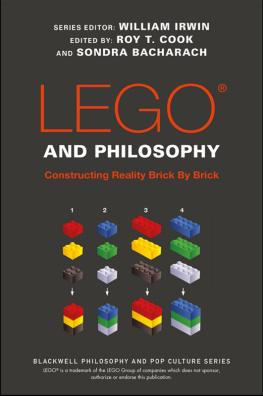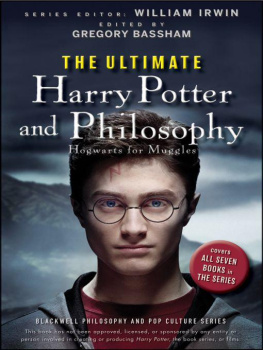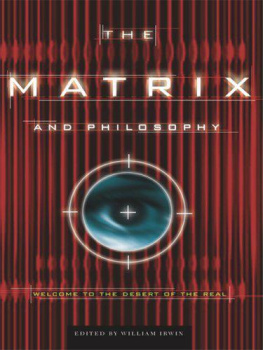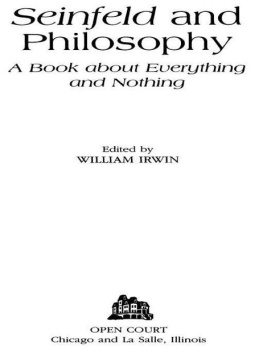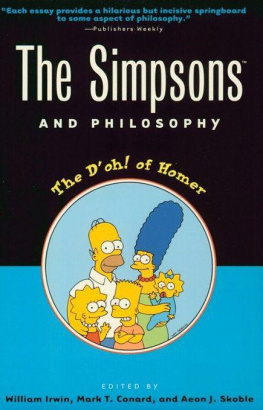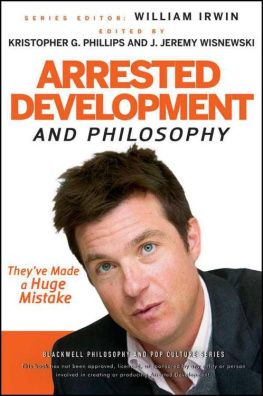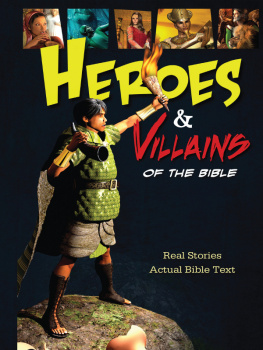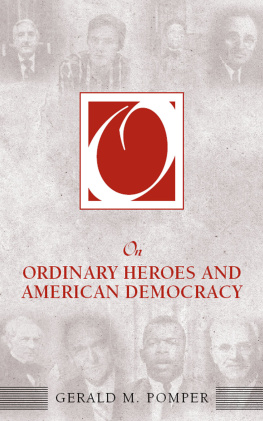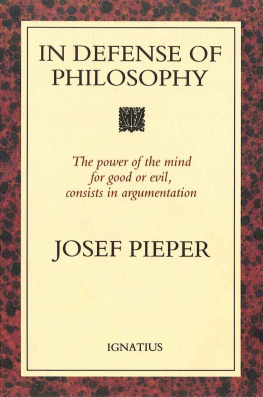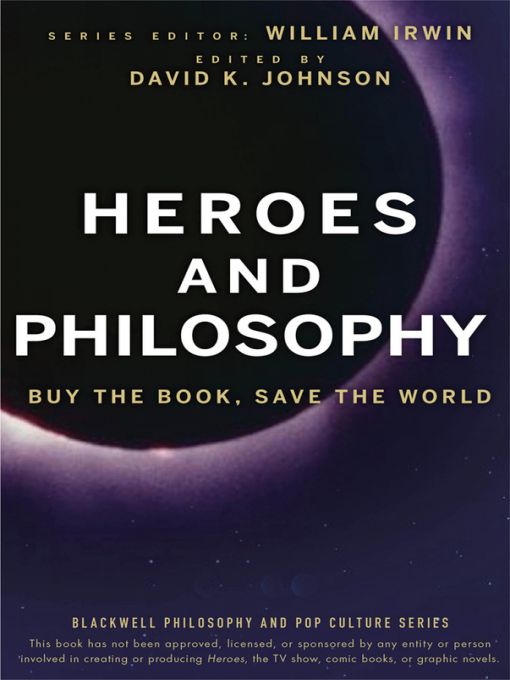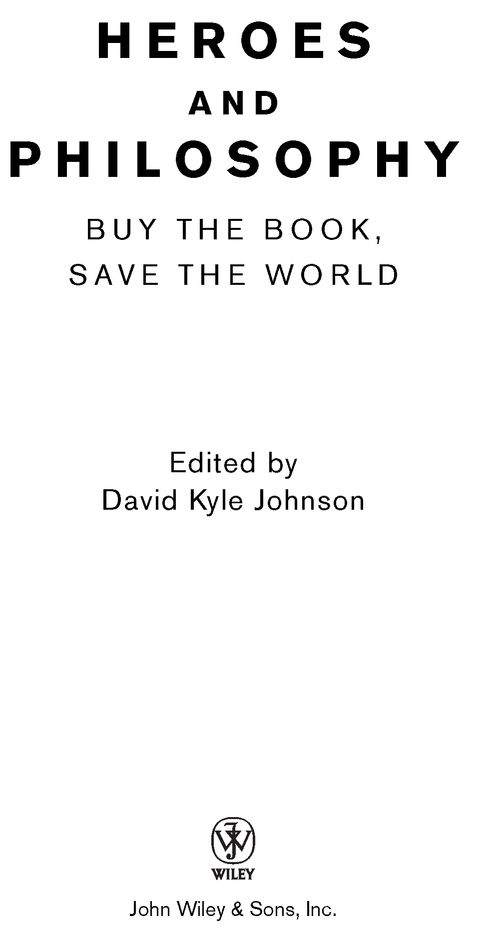Table of Contents
The Blackwell Philosophy and Pop Culture Series
Series Editor: William Irwin
South Park and Philosophy
Edited by Robert Arp
Metallica and Philosophy
Edited by William Irwin
Family Guy and Philosophy
Edited by J. Jeremy Wisnewski
The Daily Show and Philosophy
Edited by Jason Holt
Lost and Philosophy
Edited by Sharon Kaye
24 and Philosophy
Edited by Richard Davis, Jennifer Hart Week, and Ronald Weed
Battlestar Galactica and Philosophy
Edited by Jason T. Eberl
The Office and Philosophy
Edited by J. Jeremy Wisnewski
Batman and Philosophy
Edited by Mark D. White and Robert Arp
House and Philosophy
Edited by Henry Jacoby
Watchmen and Philosophy
Edited by Mark D. White
X-Men and Philosophy
Edited by Rebecca Housel and J. Jeremy Wisnewski
Terminator and Philosophy
Edited by Richard Brown and Kevin Decker
ACKNOWLEDGMENTS
Godsends
We wish to thank the employees of the Company (Wiley), especially Connie Santisteban and Lisa Burstiner, for all their hard work and dedication. Additionally, thanks to the artists who redrew our illustrations; its a good thing there is someone out there with Mr. Isaacs power for artistrybecause its not us! Thanks also goes out to William Irwin, the Takezo Kensei of the Pop Culture and Philosophy world; every power and Phil-n-Pop book can be traced back to his genius.
Kyle wishes to specifically thank William Irwin for his revisions and for giving Kyle the opportunity to edit this book. (I enjoyed it!) Special thanks go to the heroes (contributors) for their dedication, clear writing, and openness during the revision processand for putting up with the now infamous deadline debacle. Kyle wishes to especially thank his mother for her useful feedback on each and every chapter, the use of her super-proofreading powers (too bad those arent genetic), and for always pushing him to be special but not having a collection of snow globesbecause we all know that it was the snow globes that really pushed Sylar over the edge.
INTRODUCTION
The Wonder of Heroes
Heroes is more reflective than your average television show. Consider the following philosophical quote, which opens the pilot episode as well as the first season finale:
Where does it come from, this quest? This need to solve lifes mysteries, when the simplest of questions can never be answered. Why are we here? What is the soul? Why do we dream? Perhaps wed be better off not looking at all. Not delving, not yearning. But thats not human nature, not the human heart. That is not why we are here.
Mohinder Suresh, Genesis
In a way, this quote defines the entire series. Questions of mans purpose, of how to live ones life, are always just beneath the surface of our day-to-day existence. In fact, we are all philosophers in the sense that we all seek answers to these same fundamental questions. More important, opportunities to examine such questions can be found everywhereeven on televisionif we know how to look for them.
By looking philosophically at Heroes, we have a unique opportunity to examine questions crucial to our existence as thinking, rational beings. Is the Company evil or good? Does Hiro Nakamura really have a destiny? Do we? Could mind reading be a power that we already have? Is time travel actually possible? If it is, could we, like Hiro, use it to save the lives of those we love? What obligations does Peter Petrelli have to his brother, Nathan? Does family really come first? Is it okay to lie in order to hide your powers or save the world? Shouldnt the heroes of Heroes get paid for their services?
Heroes is especially useful for dealing with philosophical questions, because we usually prefer these questions to be addressed in narrative. From the fables of Aesop to the stories of the Bible, the narrative form provides a powerful way of learning and remembering moral lessons. Heroes in particular provides us with a rich world of weird situations, powers, and characters whom we know and love and can use to ask and answer our questions. What role does memory play in personal identity? Could the Haitian erase a person by erasing his or her past? What is the right way to understand Peters power, and could we already have it? Could the rise of superpowers break down society? How seriously should we take fringe scientific works, like Chandra Sureshs Activating Evolution? Well even ask about the show itself. It shares many elements with stories that came before it; could Tim Kring be guilty of plagiarismor something worse?
So prepare to dive into the world of Heroes and the world of philosophyand to learn something along the way. And if you like Heroes, you can also prepare to enjoy yourself. This book is written by Heroes fans for Heroes fansreal Heroes fans who believe Heroes can stand up to its competition, unlike certain Arizona senators when running for president:
For the next two hours you will be seeing SNLs Presidential Bash 2008.... Next week Heroes will return at its own normal time.... Right now, over at the other networks you can find such shows like Dancing with the Stars, Boston Legal, Two and Half Men, and CSI Miami. And they will probably tell you that they are better shows than Heroes. And that may be so. But guess what, my friendsHeroes isnt on tonight. If those other networks wanted to go up against Heroes, they should have waited a week.
John McCain, Saturday Night Live Presidential Bash 08, November 3, 2008
As you open this book, open your mind. A world of adventure and knowledge awaits.
NOTES
A special thanks goes out to Tyler Shores for his contributions to this introduction.
PART ONE
HEROIC OBLIGATIONS
ONE
ABOVE THE SOCIAL CONTRACT? HOW SUPERHEROES BREAK SOCIETY
Robert Sharp
What would happen if you committed a murder? First, law enforcement agencies would attempt to discover your transgression. If you left a weapon behind, it would be found. If you did not, forensics would still know what kind of weapon you used. If it was a gun, the remaining bullet would become evidence. If it was a knife, the hole in the victims body would indicate the knifes size and your relative strength. In both cases, angles, positioning, and similar features are fairly easily discovered. Even the blood splatter tells a story. (I watch too much CSI.) Assuming you are caught, you would be tried in front of a jury of your peerspeople who are considered your equals before the lawand the prosecution would use this evidence against you. Once convicted (you left so many clues!), you would go to prison, either to serve your sentence or to await your execution. From crime to punishment, your case would proceed like any other. You would be treated no better or worse than any other citizen, and you would receive no special treatment or advantage. Equality and due process are part of our legal systemat least in theory. They ensure that justice remains fair and impartial for all members of society.


